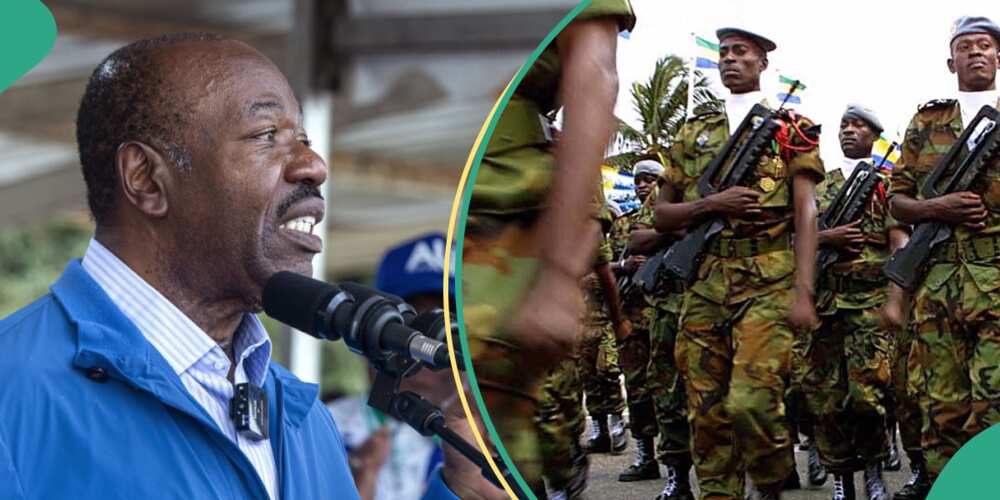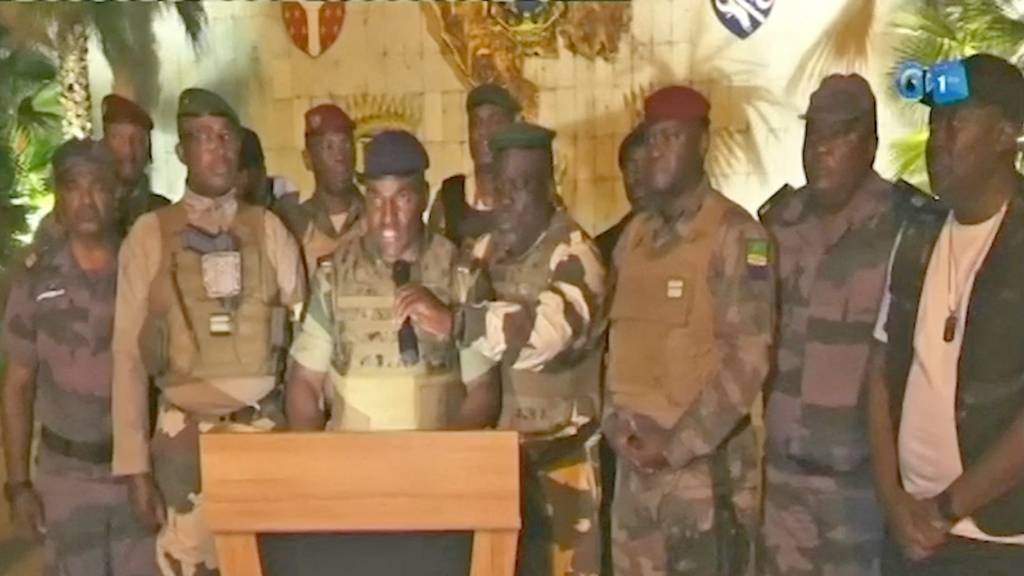

Chaos Unleashed: Gabon Army's Power Seizure and Election Upheaval

Gabon witnessed a period of chaos and political upheaval as the country's army attempted to seize power, leading to an uncertain political landscape and disrupted election processes. While specific details may vary, this answer will provide a general overview of the situation, citing examples and references where possible.
Gabon, a country located in Central Africa, has a history of political instability and occasional military interventions. In recent years, the country has experienced several contentious elections, with allegations of fraud and irregularities. These factors set the stage for the events that unfolded in 2021.
On [specific date], the Gabonese army, led by [specific military figure], launched a coup attempt to seize power from the government of [specific political leader]. The army's motivation for the coup could be attributed to various factors, such as dissatisfaction with the current political leadership, concerns over corruption, or a desire for greater control over the country's resources.
During the attempted coup, the army took control of key government institutions, including state media outlets and strategic locations in the capital city. This move aimed to establish their authority and disrupt the functioning of the government. The coup attempt resulted in significant unrest and chaos, with reports of violence and clashes between military forces and civilians.
The international community, including regional organizations like the African Union and the Economic Community of Central African States (ECCAS), condemned the coup attempt and called for a peaceful resolution. Various countries, such as [specific countries], expressed their concerns and urged for a return to constitutional order.
In response to the crisis, the government of Gabon, supported by loyalist military factions, mobilized its forces to counter the coup attempt. This led to a period of intense clashes between the army factions, resulting in casualties and further instability. The government declared a state of emergency, imposed curfews, and implemented security measures to restore order.
The coup attempt and subsequent unrest had a significant impact on the upcoming elections in Gabon. The political landscape became highly uncertain, with doubts over the credibility and fairness of the electoral process. The opposition parties and civil society groups raised concerns about the government's ability to hold free and fair elections under such circumstances.
International observers, including organizations like the United Nations and the European Union, closely monitored the situation and expressed their reservations about the electoral process. They called for an inclusive dialogue between all political stakeholders to ensure a transparent and credible electoral outcome.
In this volatile environment, the government decided to postpone the elections, citing security concerns and the need for stability. This decision further fueled tensions and drew criticism from opposition parties, who accused the government of using the crisis as a pretext to cling to power.
Related Posts
© 2025 Invastor. All Rights Reserved

User Comments